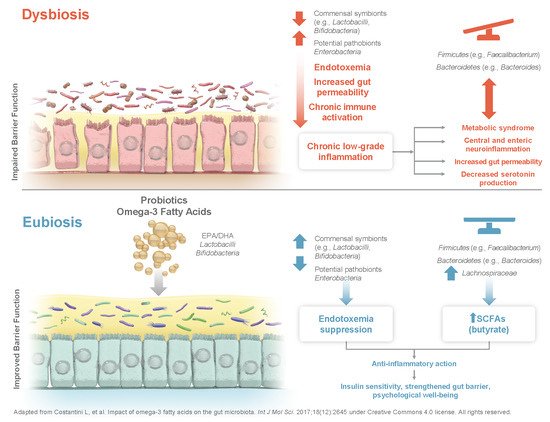
Chronic low-grade inflammation negatively impacts health and is associated with aging and obesity, among other health outcomes. A large number of immune mediators are present in the digestive tract and interact with gut bacteria to impact immune function. The gut microbiota itself is also an important initiator of inflammation, for example by releasing compounds such as lipopolysaccharides (LPS) that may influence cytokine production and immune cell function. Certain nutrients (e.g., probiotics, ?-3 fatty acids [FA]) may increase gut microbiota diversity and reduce inflammation. Lactobacilli and Bifidobacteria, among others, prevent gut hyperpermeability and lower LPS-dependent chronic low-grade inflammation. Furthermore, ?-3 FA generate positive effects on inflammation-related conditions (e.g., hypertriglyceridemia, diabetes) by interacting with immune, metabolic, and inflammatory pathways. O-3 FA also increase LPS-suppressing bacteria (i.e., Bifidobacteria) and decrease LPS-producing bacteria (i.e., Enterobacteria). Additionally, ?-3 FA appear to promote short-chain FA production. Therefore, combining probiotics with ?-3 FA presents a promising strategy to promote beneficial immune regulation via the gut microbiota, with potential beneficial effects on conditions of inflammatory origin, as commonly experienced by aged and obese individuals, as well as improvements in gut-brain-axis communication
